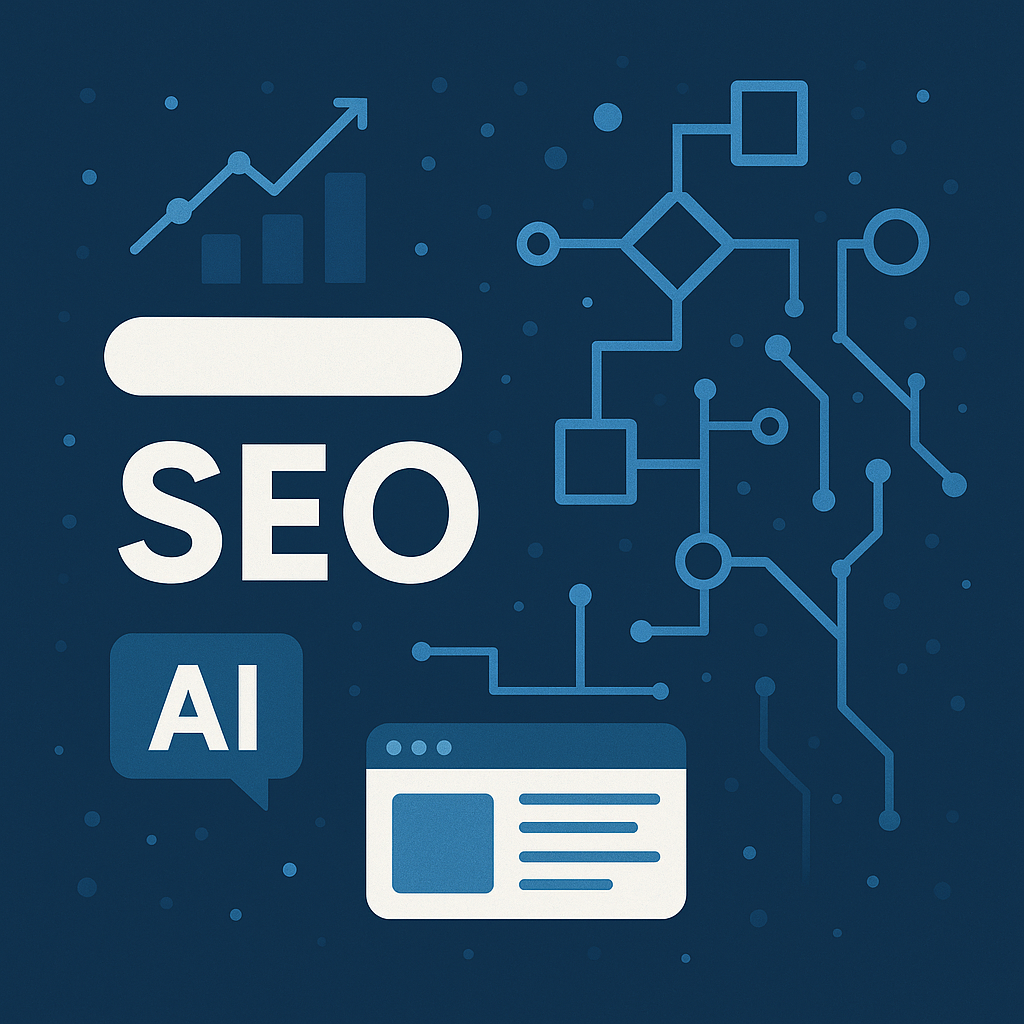Can Gen AI Tools Audit Your SEO? What ChatGPT, Claude, Gemini & Copilot Can, and Can’t, Do

SEO is one of the most cost-effective ways to grow your marketing impact, but it’s also time and resource intensive. If you're part of a lean SMB marketing team, you may not have a dedicated SEO expert or the budget for a professional agency.
That’s where generative AI comes in. In this post, I tested today’s most popular general-purpose AI tools, ChatGPT, Gemini, Claude, and Copilot to see how far they can take you when it comes to improving your website’s SEO.
Can these free or $20/month tools do what a $200/month SEO platform with AI can do? Can they actually analyze your site, diagnose issues, and generate a score to show where you're strong and prioritize where you need work?
My Prompt (and the Problem It Exposed)
To evaluate these tools, I gave each one the same prompt:
“Please run a full SEO audit of my website [insert URL]. I’m looking for a detailed analysis that covers:Technical SEO (indexing, site speed, mobile usability, structured data)On-page SEO (meta titles/descriptions, header structure, keyword usage, internal linking)Content quality (thin or duplicate content, keyword targeting, content gaps)Backlink profile (authority, spam score, referring domains)Local SEO signals (if applicable)
Highlight the top 3–5 issues hurting performance and suggest actionable fixes. Include quick wins vs. long-term improvements. Assume the site is for a [type of business].”
Only ChatGPT Plus (GPT-4o) was able to access my site in real-time, a requirement for conducting an audit. While the output was useful, it still read more like general best practices than a tailored analysis. Even with follow-up prompts about detail, context and rationale, the report lacked the data depth and precision of a true SEO tool.
By contrast, platforms like Semrush or SurferSEO provide full-site audits, keyword research, backlink tracking, and competitor benchmarking. They generate scoring and recommendations based on top-ranking pages, suggest ideal word counts, analyze keyword density, and assess content structure, all based on live SERP data.
That said, each AI tool had its own strengths and potential role in your SEO workflow. Here’s a breakdown of what they do well—and where they fall short:
What Each Tool Did Best
ChatGPT (GPT-4o) is outstanding for content creation, meta descriptions, and schema markup. With the paid GPT-4o version, it can browse your live site, analyze page structure and visible content, and offer improvement suggestions. But it doesn’t function like a true SEO analysis tool. Its assessments included the word "likely" a lot, as in "likely slow on mobile", without any data to back it up.
- Best for: Content creation, basic HTML audits, quick meta tag reviews.
Gemini can’t crawl your website, its deep integration with the Google ecosystem makes it particularly effective for SERP strategy and local SEO. It’s excellent at generating content for featured snippets, "People Also Ask" boxes, and location-intent queries. It also interprets Google Search Console data to identify query performance issues and click-through optimization opportunities.
- Best for: Local SEO, featured snippets, and aligning with Google’s ranking signals.=
Claude 3 doesn’t access websites directly, but it offers a more nuanced, human-like approach to SEO challenges. Upload screenshots, audits, or analytics reports, and Claude delivers thoughtful insights—including issue prioritization and UX suggestions like layout clarity or CTA placement.
- Best for: Strategic SEO planning, interpreting complex audit data, and enhancing user experience.
Copilot can’t audit your site either, but it’s a strong SEO research assistant. It excels at competitive analysis and tracking industry trends. When provided with performance data, Copilot helps contextualize your site’s performance against broader benchmarks and algorithm shifts.
- Best for: Competitor research, SEO trends, and content ideation.
Best Practice: Combine GenAI + SEO AI Tools
If you’re working without a full-time SEO expert, here’s a practical approach: do both. Here's a workflow:
- Run a Real Audit
Use an SEO platform (like Surfer or Semrush) to uncover technical issues and content gaps. - Analyze with AI
Feed audit results into ChatGPT or Claude to interpret findings, prioritize fixes, and build a roadmap. - Create Smarter Content
Use GenAI tools to generate SEO-friendly blog posts, product pages, or meta tags based on insights. - Monitor and Adapt
Re-run audits regularly. Use AI to track changes, monitor trends, and adjust your strategy.
Does This Matter if AI Search is Going to Change Everything?
Thought leaders still believe that the principles driving SEO success today will continue to be effective in an AI-dominated search landscape. The reason is that AI-powered search engines interpret meaning, not just phrases, rewarding content that demonstrates originality, relevance, and experience. AI can’t replace your expertise, perspective, or strategy.
SEO is adapting to "Answer Engine Optimization" (AEO), where the goal is to position your brand as the trusted source that AI models cite. This involves creating content that directly and concisely answers user queries, making it easy for AI to extract it and present it.
A technically sound and crawlable website is just as important when the search experience is all AI.





